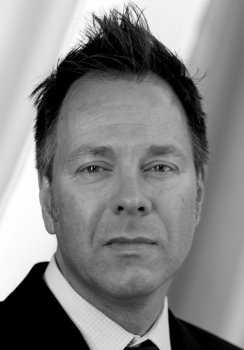
FIVE MINUTES WITH STEPHEN MANN
Police Mutual’s chief executive discusses Force for Good, the funding programme designed to support police officers’ local communities, chosen causes and individual groups or initiatives

What does Police Mutual do?
We provide financial services. We are a not-for-profit organisation and we maximise what we do for our members and the police service. That’s a philosophy that was established way back when we were formed in the 1860s. There was a belief that having an organisation like ourselves would be really good for the police service and good for the people who serve in it. It would be good for good for individuals’ wellbeing if there was an organisation tthat gave them access to products and services that they wouldn’t be able to get elsewhere. That philosophy is still at the heart of how we try and run the business today.
How does Police Mutual benefit its community?
One of the things that we don’t really try and distinguish is corporate social responsibility because actually doing the best we can and providing support for the members of the police service is just part of who we are. And one of the things that we’ve been doing over the last four to five years is making sure that we can demonstrate why we’re good for the police service and why we’re good for our members in a more explicit way. That can be through having really good value products, but on another level, it’s also demonstrating that we give things back. In total we normally give back about £3m a year to the police services and that’s in the form of free financial education, it’s in the form of funding wellbeing initiatives, we fund rest breaks, we have wellbeing zones that help people manage their fitness and lifestyle and we have lifestyle breaks, as well sponsoring a number of big initiatives.
What is Force for Good?
This came from was a belief that the police service are public servants. But that sense of public service didn’t stop when people take the uniform off. What we thought was ‘Is there an opportunity to try and recognise and help our members in the police service develop and fund initiatives that they would typically do outside work?’ The old phrase by Robert Peel is, ‘The public is the police and the police are the public.’ These are ordinary people that do extraordinary things, but outside work they have that sense of public service.
How extensive is the programme?
We’ve received over 1,300 applications for funding from every force geographically – and there are a number of police forces that are not geographically based like the Ministry of Defense police, the British Transport Police and Civil Nuclear Constabulary – so every police force in the country has responded, which is genuinely overwhelming. And 1,300 is an astonishing number of submissions. They range from a sort of genuine community activities through to a whole range of other things that are close to individuals hearts.
How do you communicate about Force for Good?
We’ve obviously used many of the traditional channels but we are also very fortunate in having a number of about 1,000 volunteers who act as our champions in forces, called our Authorised Officers. We’ve had some terrific support from either command teams or local federations and it’s also spread very virally. I think there still remains quite a community spirit among police officers and when people hear of something good, they’ll typically spread the word.
How did the financial crisis change the banking industry’s relationship with its communities and social programmes?
There’s no doubt that faith in financial services has been on the decline for many years. It didn’t just happen in 2008 and to be fair, many of the things that have happened in the sector have been self-inflicted. What’s happened since then is many organisations have clocked that as a minimum, you’ve got to be seen to be a good corporate citizen. In a world where there isn’t much trust in the sector, that’s a basic. For an organisation like Police Mutual, simply being a good corporate citizen isn’t enough. We need to come up ways in which we can demonstrate why we’re different and why the things we do are just part of who we are and that’s why things like Force for Good help reinforce that. In a world where there is still some distrust about organisations in our sector, we have a real opportunity to create a substantial competitive differentiation based on trust in our mutuality and the fact that our business model is very different.



